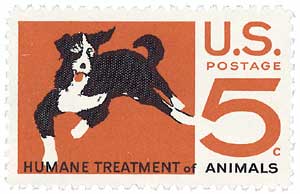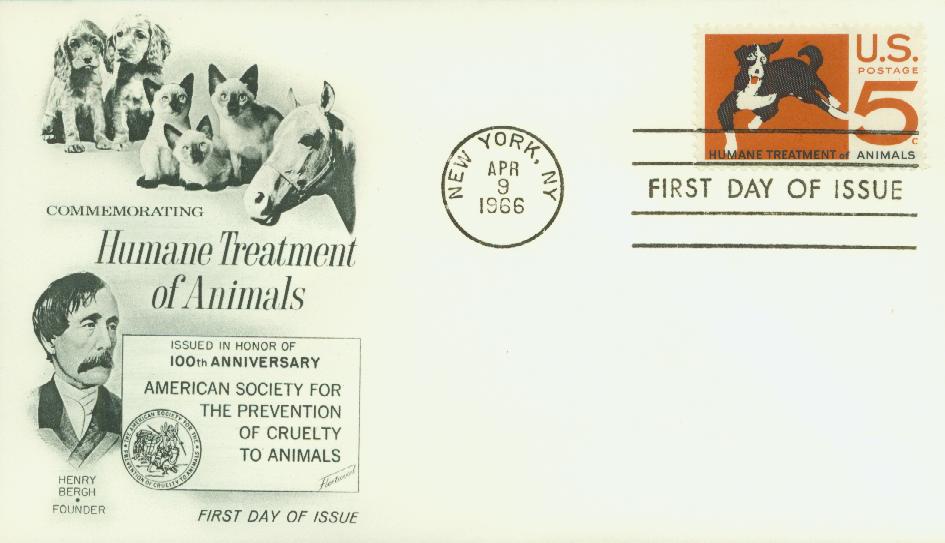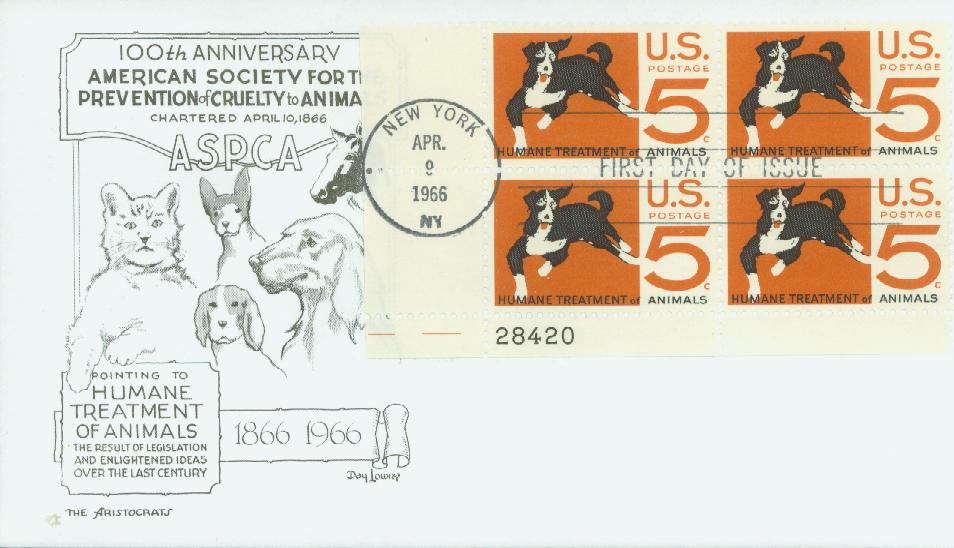U.S. #4451-60
Animal Rescue
Issue Date: April 30, 2010
City: North Hollywood, CA
Printing Method: Lithographed
Perforations: Serpentine Die Cut 10.75
Color: Multicolored
When I think back, I always remember him as my perfect “husband.” Hershey never let my children out of his sight, helped tuck them in at night, and laid at my feet as I unwound from the day. Full of puppy exuberance when I was happy, and big brown liquid eyes if I felt a bit down. We had found Hershey in a shelter when he was just a few weeks old and quickly discovered he was full of intestinal parasites. The vet advised me to euthanize him, but we’d already fallen in love. So I fed him syringes of Gatorade for weeks – 20 a day just to keep him hydrated – and started a rigorous medication schedule. Saving Hershey – both times – was one of the best decisions I’ve ever made.
Domestic animals have given people comfort, service, and unwavering loyalty for thousands of years. Dogs are the protectors of our children, tireless herders of livestock, and faithful hunting partners. Cats amuse, mystify, and provide loving companionship. Yet these faithful pets are often betrayed by the very people they rely on, and the outcome for them will almost certainly be tragic.
Animals were regarded as property throughout history, and most laws served to protect people from them rather than prevent animal cruelty. In 1866, Henry Bergh founded the American Society for the Prevention of Cruelty to Animals (ASPCA) to protect “these mute servants of mankind.”
At the heart of Bergh’s philosophy was that protecting animals was everyone’s responsibility as “a matter purely of conscience; it has no perplexing side issues. It is a moral question in all its aspects.” A few days later, New York State passed the nation’s first effective legislation against animal cruelty and gave the ASPCA the right to enforce it.
The movement spread and changed the way Americans viewed domestic pets. Working alone or with government animal control officers, shelter workers pick up lost, stray, injured, and neglected pets. In spite of aggressive campaigns to educate the public on the importance of spaying and neutering pets, approximately eight million cats and dogs end up in shelters annually. On average, only one fourth of them will survive, making euthanasia the leading cause of death among healthy cats and dogs.
The reasons owners have for giving up their pets to shelters is revealing. Unwanted litters are only part of the problem. All too often, lack of proper training combined with unrealistic expectations and a pet is given up after just a few months. Had the owner selected a pet that fit their lifestyle, understood basic obedience training, and realized a small degree of patience was needed to nurture their animal through its adolescence, many cats and dogs could have been spared.
This is encouraging news for people considering a new pet. The majority of shelter pets were innocent victims of a careless or uneducated owner, and can flourish in a caring home. Adopting a shelter pet saves them from destruction and is an affordable alternative to buying from a breeder. Equally important, adopting a cat or dog from a shelter can be the beginning of a long, loving, and mutually rewarding relationship.
ASPCA

On April 10, 1866, Henry Bergh founded the American Society for the Prevention of Cruelty to Animals (ASPCA).
Animals were regarded as property throughout history, and most laws served to protect people from them rather than prevent animal cruelty. While in Europe on a diplomatic mission, Bergh was distressed by the cruel treatment against animals that he witnessed.

On his return trip, Bergh passed through England where he met Lord Harrowby, the president of the Royal Society for the Prevention of Cruelty to Animals. Harrowby had a significant impact on Bergh and inspired him to dedicate his life to putting an end to animal cruelty. He resolved that he would not only create an organization to protect animals, but also that they would have the power to arrest and prosecute those that violated the law.

After returning to America, Bergh was especially disturbed to witness the cruelty inflicted on New York City’s working horses. He was determined to change common perceptions of acceptable behavior toward animals. In one public address he spoke eloquently saying, “This is a matter purely of conscience; it has no perplexing side issues. It is a moral question in all its aspects.” At the heart of Bergh’s philosophy was that protecting animals was everyone’s responsibility. His words moved his audience and encouraged several dignitaries to sign his “Declaration of the Rights of Animals.”

Armed with the support of prominent dignitaries, Bergh lobbied the New York State Legislature to pass a law protecting animals. The charter given to incorporate the American Society for the Prevention of Cruelty to Animals was passed on April 10, 1866. Nine days later, New York State passed an anti-cruelty law and granted the ASPCA the authority to enforce it.

Bergh was very involved in the ASPCA’s work. He was often found in the streets and courtrooms fighting for animal welfare. He inspected slaughterhouses, helped the police close down dog and rat fighting pits, and spoke at schools and organization meetings. The society operated the first equestrian ambulance, developed a sling to rescue horses, and supplied fresh drinking water for Manhattan’s horses.
By the time of Bergh’s death in 1888, 37 of 38 states in the Union had enacted anti-cruelty laws. In the early 1900s, the ASPCAs focus shifted more to small domestic animals such as dogs and cats. Today, the ASPCA focuses on sheltering abandoned animals, adoption programs, and spaying and neutering advocacy.
Click here for more animal stamps.
Click here for more from the ASPCA website.






















